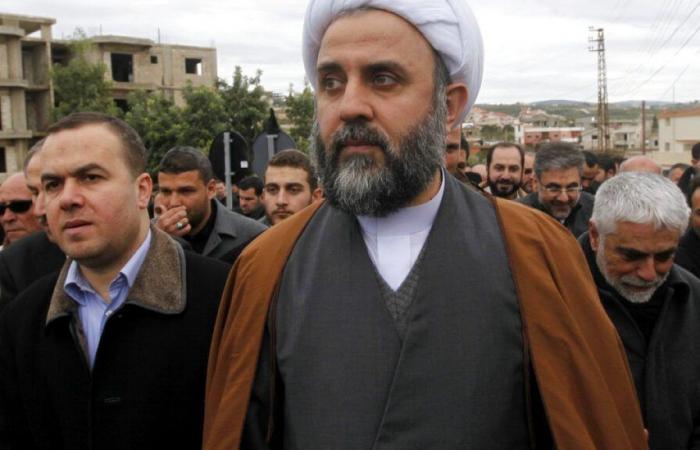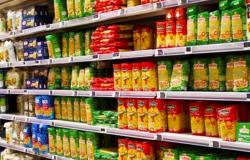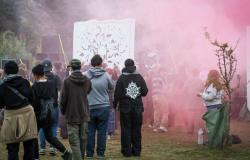The Israeli military said Sunday it had killed another senior Hezbollah official in an airstrike, as the Lebanese militant group reels from a series of devastating blows and the assassination of its top leader.
ADVERTISEMENT
The army said Nabil Kaouk, the deputy head of Hezbollah’s Central Council, was killed on Saturday. Hezbollah confirmed his death, making him the seventh senior Hezbollah leader killed by Israeli strikes in just over a week. These are founding members who have escaped death or detention for decades.
Hezbollah had previously confirmed that Ali Karaki, another high-ranking commander, died in Friday’s strike that killed Nasrallah. The Israeli military earlier said Karaki was killed in the airstrike, which targeted an underground compound in Beirut where Nasrallah and other senior Hezbollah officials were meeting.
Israel says at least 20 other Hezbollah militants were killed in the strike, including two close associates of Nasrallah, one of whom was responsible for his security.
Deadly Israeli strikes
In addition, Israeli warplanes and drones carried out deadly strikes across Lebanese territory on Sunday. Lebanon’s health ministry said two consecutive strikes near the southern town of Sidon, about 45 kilometers south of Beirut, killed at least 24 people. Furthermore, Israeli strikes in the northern province of Baalbek Hermel left 21 dead and at least 47 injured.
The Israeli military said it carried out another targeted strike on Beirut on Sunday, but did not immediately provide details.
Lebanese media reported dozens of strikes in the central, eastern and western Bekaa, in the south, as well as in Beirut. The strikes targeted buildings where civilians lived. According to the health ministry, a strike in the southern district of Sidon left 24 dead and 29 injured.
In a widely distributed video of the strike verified by the Associated Press, a building in a Sidon neighborhood can be seen swaying before collapsing, while neighbors filmed the strike.
A television channel called on viewers to pray for a family trapped under the rubble, publishing their photos as rescuers failed to reach them. Lebanon’s health ministry said Sunday that at least 14 doctors had been killed in two days in the south of the country.
Hodeidah city hit by Israeli army
Also on Sunday, the Israeli military said dozens of planes struck Houthi targets in Yemen in response to a recent attack on Israel. The army said it targeted power plants and port facilities in the city of Hodeidah.
The Houthis launched a ballistic missile attack on Ben Gurion Airport on Saturday, upon the arrival of Prime Minister Benjamin Netanyahu. The Houthi media office said the Israeli strikes hit the ports of Hodeidah and Ras Issa, as well as two power plants in the city of Hodeidah, a stronghold of the Iran-backed rebels.
After the strikes, fires and plumes of smoke were seen in the air above Hodeida. The Houthis claimed to have taken precautionary measures before the strikes, emptying oil stocks at ports, according to Nasruddin Ammer, deputy director of the Houthis’ media office. He said in a post on the X platform that the strikes would not stop rebel attacks on sea routes and on Israel.
Lebanon’s health ministry said two consecutive strikes near the southern town of Sidon, about 45 kilometers south of Beirut, killed at least 24 people.
Furthermore, Israeli strikes in the northern province of Baalbek Hermel left 21 dead and at least 47 injured. The Israeli military said it carried out another targeted strike on Beirut on Sunday, but did not immediately provide details.
Hezbollah targeted by major attacks
Earlier this month, Hezbollah was also the target of a sophisticated attack on its pagers and walkie-talkies, which was widely blamed on Israel.
A wave of Israeli airstrikes across much of Lebanon has killed at least 1,030 people, including 156 women and 87 children, in less than two weeks, according to Lebanon’s health ministry.
The government estimates that around 250,000 people are in shelters, and three to four times more are staying with friends or relatives, or camping in the streets, Environment Minister Nasser Yassin told the American Press Agency (AP).
Hezbollah continued to fire rockets and missiles into northern Israel, but most were intercepted or fell in open areas. No Israelis have been killed since the latest wave of strikes targeting Hezbollah’s top leaders began on September 20.
Hezbollah, a Lebanese militant group and political party backed by Israel, Israel’s main regional rival, rose to prominence in the region after waging a devastating month-long war against Israel in 2006, which ended in a draw.
The risk of total war
Hezbollah began firing rockets, missiles and drones into northern Israel after the Hamas attack from Gaza on October 7 sparked the war in that region. Hezbollah and Hamas are allies who see themselves as part of an “axis of resistance” against Israel, supported by Iran.
Israel responded with waves of airstrikes, and the conflict gradually escalated to the brink of all-out war, raising fears of a region-wide conflagration.
Israel says it is determined to return some 60,000 of its citizens to northern communities that were evacuated almost a year ago.
The White House continues to call on Israel and Hezbollah to agree to a temporary 21-day ceasefire, proposed by the United States, France and other countries last week, as world leaders gathered for the United Nations General Assembly.
Hezbollah has said it will only stop its rocket attacks if there is a ceasefire in Gaza, which has proven elusive despite months of indirect negotiations between Israel and Hamas, led by the United States, Qatar and Egypt.






